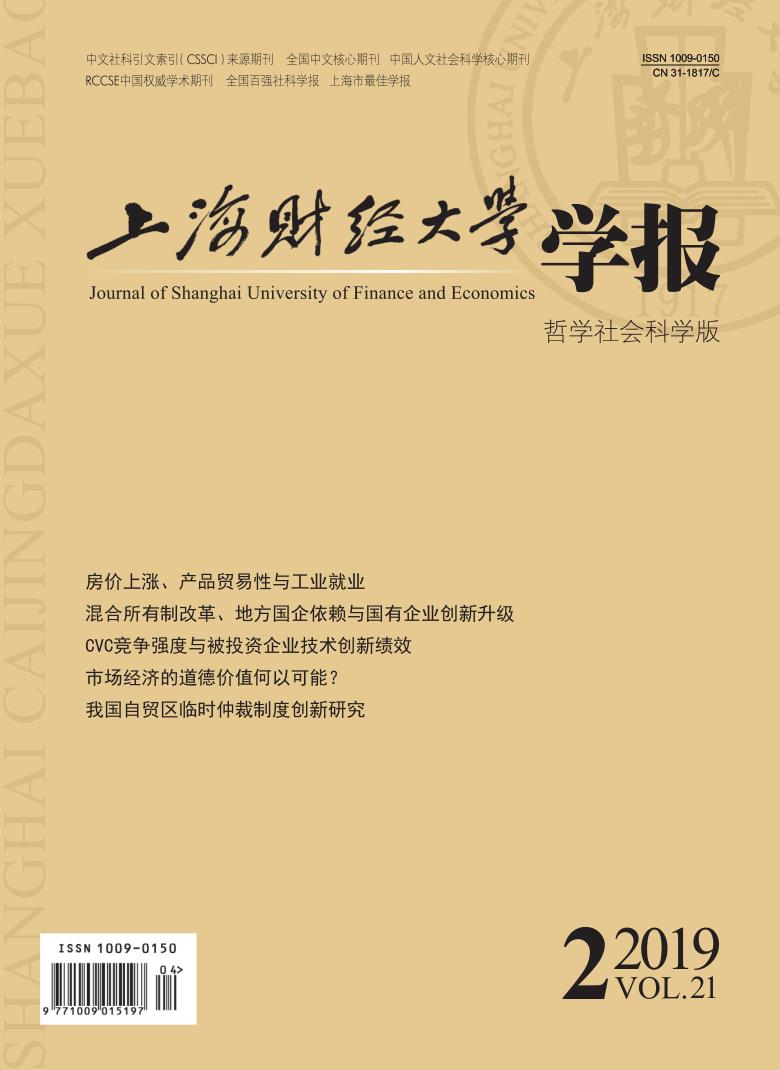Housing price fluctuation has an important effect on employment, which has not been paid enough attention to. Since the global financial crisis in 2007, declining housing price, decreasing consumption and increasing unemployment have coincided, which promotes academia to think more deeply about the impact of housing price fluctuation on the real economy. The research on the impact of housing price fluctuation on the real economy gradually expands to the impact on employment. In the recent twenty years, the housing price has been in a rising cycle in China. This paper studies the impact of the rising housing price on the employment in China. It is mainly devoted to solving the following two problems: one is how the rising housing price in China affects the employment in industrial enterprises; the other is how the impact is transmitted. The impact mechanism of housing price changes on the employment in industrial enterprises mainly includes the following three types: crowding-out effect, demand effect and collateral effect. Subsequently, this paper empirically examines the impact of the rising housing price on the employment in industrial enterprises by using the data from the database of all state-owned industrial enterprises and non-state-owned industrial enterprises above the designated size from the National Bureau of Statistics. After controlling a series of individual and regional characteristic variables, the results of ordinary least square regression based on mixed cross-sectional data and fixed effect regression based on panel data both show that the rising housing price increases the number of employees. Further, all enterprises are divided into two categories: those producing tradable goods and those producing non-tradable goods. Since the demand for non-tradable goods mainly depends on the local market and the demand for tradable goods depends on the national or even global market, the demand effect expects that the rising housing price will have a greater impact on the employment in enterprises producing non-tradable goods than on that in enterprises producing tradable goods. But the collateral effect has no such difference. These results show that the rising housing price increases the employment both in enterprises producing tradable goods and in enterprises producing non-tradable goods. And the increase of the employment in enterprises producing non-tradable goods is greater than that in enterprises producing tradable goods. Therefore, both the demand effect and the collateral effect exist. This paper will help to deepen the understanding of how the housing price affects the real economy from the perspective of employment, and provide empirical support for the discussion of the housing price regulation and employment-related policies in China.
 / Journals / Journal of Shanghai University of Finance and Economics
/ Journals / Journal of Shanghai University of Finance and EconomicsJournal of Shanghai University of Finance and Economics
LiuYuanchun, Editor-in-Chief
ZhengChunrong, Vice Executive Editor-in-Chief
GuoChanglin YanJinqiang WangWenbin WuWenfang, Vice Editor-in-Chief
Housing Price Rising, Tradability of Product and Industrial Employment
Journal of Shanghai University of Finance and Economics Vol. 21, Issue 02, pp. 4 - 16,123 (2019) DOI:10.16538/j.cnki.jsufe.2019.02.001
Summary
References
Summary
Cite this article
Zhou Huadong, Zhou Yahong, He Xiaodan. Housing Price Rising, Tradability of Product and Industrial Employment[J]. Journal of Shanghai University of Finance and Economics, 2019, 21(2): 4-16.
Export Citations as:
For
ISSUE COVER
RELATED ARTICLES




 6253
6253  7426
7426

